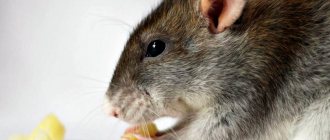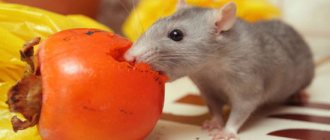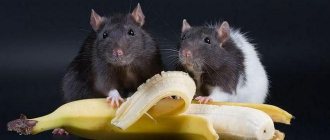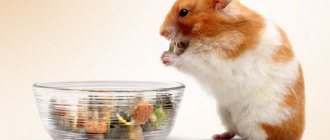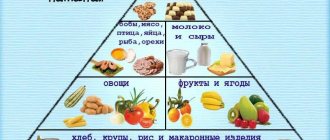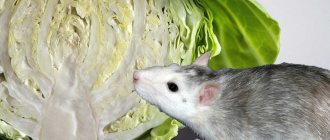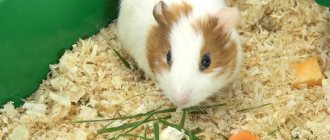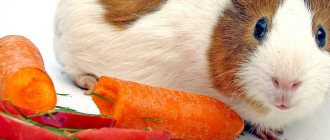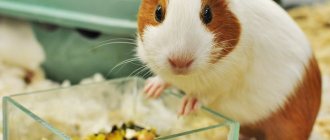Before you get a decorative pet rat, you need to study the list of foods that you can feed your rat. It is believed that rats are omnivores. Gardeners who often struggle with rodents are especially sure of this. Summer residents try in every way to kill rodents, often using poison for this. But the rats survive and continue to damage the furniture and chew up all the food they find.
But this is typical only for wild rats that live in the wild. The digestive system of domestic rats is much weaker than that of wild rats. Therefore, the owner must know what can be fed to the rat and what cannot be given to it.
Foods that should not be given to rats
If your pet's health is important to you, do not feed it from the table. It seems that there is nothing wrong with giving a rodent a piece of apple, chicken or cracker, but this is not so. The rat may refuse its food and instead receive a high proportion of fat and carbohydrates. It will be difficult to wean an animal accustomed to a common table, which means the end of a balanced diet.
It is strictly forbidden to give your rodent alcohol, fried, smoked, salted, pickled, fatty foods, carbonated drinks and sweets.
Features of proper feeding
Care and maintenance of a pet rat ensures its full existence in the apartment. At home, it is important to strictly follow the main recommendations, which mainly relate to the proper nutrition of rodents.
Before keeping pet rats at home, you should carefully study the main recommendations for their nutrition:
- It is imperative to take into account the volume of food - it should be moderate. There is no need to overfeed your rat because this may cause it to gain excess body weight. If after a meal the rat is left with uneaten food, it means that the rodent needs to be given less food;
- Rats are omnivores, but you shouldn't feed them just any food. The menu of these animals should include different foods with a high content of mineral components and vitamins;
- How many times a day should these animals be fed? Feeding should be done twice a day;
- The largest amount of food needs to be given to rats in the evening, because they are considered nocturnal animals;
- Rodents love to gnaw on various branches, which ensure the grinding of teeth. For this reason, they need to be given solid food; sometimes branches can be placed in the cage.
Grain and cereals
Grains are the main product in the diet of rats, but they are not equally important. Wheat is a rich, high-calorie product; it can be given to rats, but it must be taken into account that it must be supplemented with other components. The mixture may include oats, buckwheat, corn, rye, barley or pearl barley, rice, millet or millet. These grains are not equal. Buckwheat is a dietary low-calorie product, and corn, on the contrary. Oats should be added in small quantities; excess may cause fermentation. Refined rice is low in nutrition, so it's worth finding a wild rice blend or an unrefined version of the grain.
Semolina does not contain anything useful, so this product should be excluded from the diet. Barley or wheat cereals are suitable for porridges. Porridge is useful only for weakened, emaciated animals or young animals. Adult rats should only give them as a treat.
Vegetables and greens
Among vegetables, foods that cause fermentation are prohibited: white and red cabbage, Savoy and Brussels sprouts, as well as cauliflower. Rats can eat broccoli in small quantities. Strong gas formation is caused by radishes, turnips and radishes, as well as all types of legumes: beans, peas, beans and lentils
.
You should be careful when giving sweet peppers; some animals have the same reaction to it. You can sometimes offer boiled green beans if they do not cause gas in your pet. Carrots, zucchini, zucchini and pumpkin are delicious and healthy foods. Cucumbers in excess will cause diarrhea
.
Eggplants are only good when cooked; solanine in raw vegetables can cause poisoning. Artichokes can also only be given cooked. Potatoes will not bring any benefit to the animal
. In its raw form it is contraindicated for animals, but when cooked it acts as ballast. However, some rodents enjoy eating potatoes.
Vegetables, fruits and herbs should be given daily in small quantities - 10-12 g.
Dill, cilantro, parsley, basil and celery are healthy foods for animals and can be given every day. They are not only safe, but also help digest protein foods. Onions, garlic and wild garlic are not suitable due to phytoncides that irritate the gastrointestinal mucosa.
They should be given occasionally and in limited quantities. Acidic vegetables such as tomatoes, rhubarb and sorrel can also eat away at the delicate walls of a rodent's stomach. You should not give animals spinach either. Beets carry another danger - a laxative effect, they should be given carefully. Leaf lettuces that do not have a specific bitterness are generally suitable for animals.
Treats for rodents
There are foods that rats love most, including walnuts, hazelnuts, and seeds. Unsweetened cookies are also a delicacy, as is a piece of fresh young carrots, boiled pasta or even a cracker. The pet store has special treats - drops. They are made in different flavors from different ingredients.
You cannot spoil rats with such food; once a day will be enough. Drops are allowed to be given no more than 6 pieces per day. These nutritional supplements are like candy—sweet, but provide no benefit. In addition, not every manufacturer takes a responsible approach to the drop production process and is not always ready to indicate the true composition of the product.
You also need to please your animal with treats correctly, so choose products that do not contain sugar and salt, and should not contain flavorings or spices. You can give dried fruits or nuts every day. Most individuals cannot deny themselves the pleasure of eating corn flakes, but they should be without sugar and salt.
Diabetics have unsweetened cookies in their diet, which can also be classified as delicacies that these animals adore. Food for small children will also please the animal, for example, puree. You can make it from fruits and vegetables yourself, since natural products will bring more benefits than store-bought ones.
Not everything that seems tasty to a person is suitable for a rat; this applies to meatballs with sauce and other foods from the table. Lightly dried bread will be much better for your pet. If it contains bran, muesli or cereals, then the pet will be in seventh heaven.
If the animal has become a full-fledged member of the family, then you can please it with a home-made treat. An excellent and healthy option at the same time is porridge made from cereals and vegetables or fruits. In the summer it can be zucchini, perhaps pumpkin; in winter it’s easy to get by with a frozen mixture from the supermarket.
Vegetables are baked or steamed, cereals are steamed or lightly boiled. Add a small amount of sunflower oil and a quail egg to the mixture. A rat will not be able to refuse a steamed omelet, but you should add water, not milk, to it. Steamed meatballs with vegetables are also an excellent alternative to a tasty dinner for an animal, but in this case it is best to take beef.
Among crustaceans, rats feast on gammarus, which is added to ready-made buckwheat.
You need to know that baby rats do not always readily eat fresh vegetables, but they really love baked ones.
Fruits
All citrus fruits should be immediately excluded from the diet of rats due to acidity.
. Occasionally you can give a piece of sweet tangerine. Forest and garden berries must be sorted according to their acid level. Thus, cranberries, which are useful in many respects, should be given with caution because of their taste.
Sweet cherries are more suitable than sour cherries. Never give animals seeds from fruit trees or citrus fruits.
They can be poisonous to rodents. You should pay attention to the special properties of fruits. Chokeberry and bird cherry strengthen, and plum weakens. This must be taken into account when choosing food. Pear can cause fermentation in some individuals. Watermelons and melons can be given in small quantities and only in season, as they accumulate nitrates.
Dried fruits are too sweet and may cause fermentation. They should be given carefully, as a treat.
Dairy
The decorative rat eats dairy products with pleasure, but some animals have lactose intolerance. Regular milk should not be given to a rodent at all, but fermented milk in small quantities will not harm. However, you should not feed your pet rat sour cream, cheese or cream due to the high fat content of these products.
Animals benefit from cottage cheese, fermented baked milk, yogurt without additives and sugar, yogurt, kefir, acidophilus. All these products should have a fat content of 2-4%. Low-fat foods are less natural. “Sour milk” should be chosen with a short shelf life, preferably children’s milk or from farms.
Animal proteins
Twice, or even three times a week, animals are supposed to receive animal proteins. The following can be served at the table:
- boiled lean meat;
- hard-boiled chicken or quail eggs;
- mealworm, zoophobus (zophobas), gammarus;
- seafood;
- high quality cat or dog dry food.
From poultry, you can give chicken breast, but it is better to feed turkey, which is not fed with growth hormones. From ungulates you can take beef, lean lamb, and game. It is better to grind the boiled yolk with water so that the rat does not choke. You should not feed fatty pork and its derivatives to rats.
Store-bought beef should be soaked for 2-3 hours before cooking, and chicken should be boiled in several waters to remove harmful substances. Rats can suffer from allergies.
What to feed a little rat
A mother rat feeds her offspring with milk. However, there are times when she does not want to do this. In this case, responsibility for the life of the offspring will fall on the shoulders of the animal owner. To feed baby rats, you can purchase a lactating female at a pet store or feed the babies yourself.
To feed babies, you can use a pet milk replacer. Dry soy baby formula diluted with a small amount of goat's milk or condensed milk is also perfect.
Important! Liquid formula can be stored in the refrigerator for no longer than 12 hours. The formula will need to be warmed up slightly
To feed your offspring, it is better to use an insulin syringe with an internal catheter at the tip. You can also take a pacifier made from pieces of cotton fabric
The milk mixture will need to be warmed up a little. To feed your offspring, it is better to use an insulin syringe with an internal catheter at the tip. You can also take a pacifier made from pieces of cotton fabric.
After each meal, you should pour boiling water over the items. To avoid the development of enteritis in young animals, it is worth giving small rats a course of Biovestin.
Below you can find detailed information regarding the principle of feeding animals by week:
- In the first 7 days of a rodent's life, it is worth feeding them every 120 minutes. liquid diluted milk formula. Closer to the 7th day of life, it is worth diversifying the menu with milk formula, to which a small amount of dry ground grain feed has been added;
- in the second week, the mixture for rodents can be diluted to a consistency that will resemble liquid sour cream. You will need to drink the mixture every 3-4 hours;
- in the third week of life, you can pour the food mixed with the mixture into a bowl. From 23.00 to 6.00 you can not feed the offspring;
- At 4 weeks, animals can be switched to dry food. From the 30th day of life, rodents should be given food that is familiar to adults. If desired, rat pups can be fed milk until the end of the second month of life.
Babies will need to be fed the mixture every 2 hours.
What menu should kids have? When choosing a diet for little rats over 4 weeks old, you should give preference to:
- dry grain;
- boiled chicken, turkey and fish fillets;
- cottage cheese;
- dill and cilantro;
- bananas;
- apples;
- wheat sprouts;
- oats;
- chicken egg yolks;
- boiled chicken and turkey liver.
Under no circumstances should children be allowed to indulge in:
- cucumbers;
- champignons;
- garlic and onions;
- tomatoes.
Note! When rat pups are fed milk by their mother, they can only be fed by the 21st day of life. It is best not to wean babies early from breastfeeding, which has a positive effect on strengthening the animal’s immunity.
Organizing the right diet for your beloved rodent is important; this will allow you to raise the animal healthy. It is important to give up the desire to pamper your four-legged friend with table scraps such as sweets and sausage, as this can provoke the development of various pathologies of internal organs
